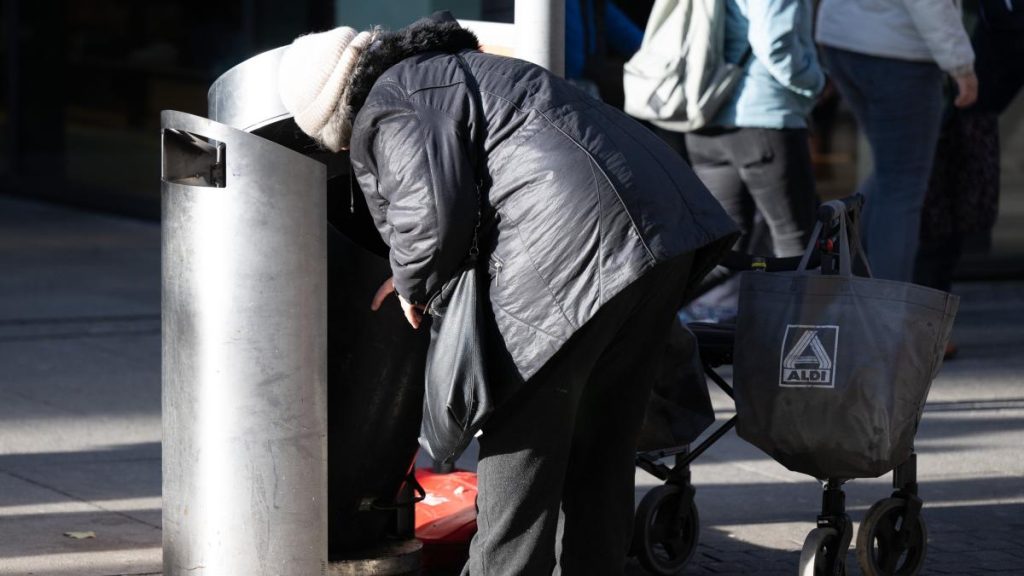The Paritätischer Gesamtverband in Germany has released its annual report on poverty in the country, revealing that more than 14 million people were living in poverty in 2022, with many of them being employed. The number of people living in poverty increased to 14.2 million in 2022, with approximately three million of them being children. Although the poverty rate slightly decreased to 16.8 percent, the absolute number of people in poverty increased by 100,000 compared to the previous year. The report also highlighted that nearly a million more people were living in poverty in 2022 compared to 2019, before the pandemic, energy crisis, and high inflation.
The report also noted that child poverty reached a record high, with just under 22 percent of children being affected by poverty. Among single parents, the poverty rate was at 43.2 percent. It was highlighted that nearly two-thirds of adult individuals living in poverty were either employed, retired, or receiving a pension. Families with many children, individuals with low educational qualifications, and those with foreign citizenship were also identified as being at risk of poverty. The poverty levels varied regionally in Germany, with states like Bavaria, Baden-Württemberg, and Brandenburg having lower poverty rates compared to regions like the Ruhr area.
The Paritätischer Gesamtverband called on the German government to take decisive action against poverty by raising the minimum wage to 15 euros, expanding childcare services, implementing effective child benefits, introducing a climate allowance, and establishing a solidary long-term care insurance as comprehensive insurance. The organization criticized the call for a moratorium on social benefits by Federal Finance Minister Christian Lindner, stating that it would further divide Germany socially and politically. Social organizations and the Left Party expressed concern over the worsening poverty situation, with calls for effective measures to address child poverty through measures such as a child benefit scheme and improved social policies.
The Linkspartei described the new poverty report as a clear warning signal, emphasizing the injustice of working 40 hours a week and still living in poverty in one of the wealthiest countries in the world. The party criticized the unequal distribution of wealth in Germany, with the majority of people missing out on economic prosperity. Meanwhile, the FDP advocated for lower taxes and reduced bureaucracy, arguing that economic growth, rather than redistribution, was the key to combating poverty and low incomes. The contrasting views on addressing poverty highlight the complex socio-economic challenges facing Germany and the need for comprehensive policy responses to tackle income inequality and improve living conditions for all citizens.
In response to the report, various social organizations and political parties called for urgent action to address the high levels of poverty in Germany, especially among children. Concerns were raised about the failure of existing support systems to reach those most in need and the need for systemic reforms to alleviate poverty and create equal opportunities for all individuals. The regional disparities in poverty rates also underscored the importance of targeted interventions to address specific challenges faced by different communities across Germany. Despite the challenges posed by poverty and inequality, the call for solidarity and collective action to create a more equitable society remains essential in addressing the root causes of poverty and promoting social justice for all individuals.















